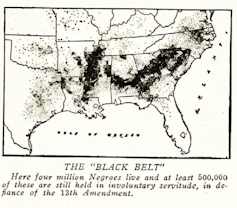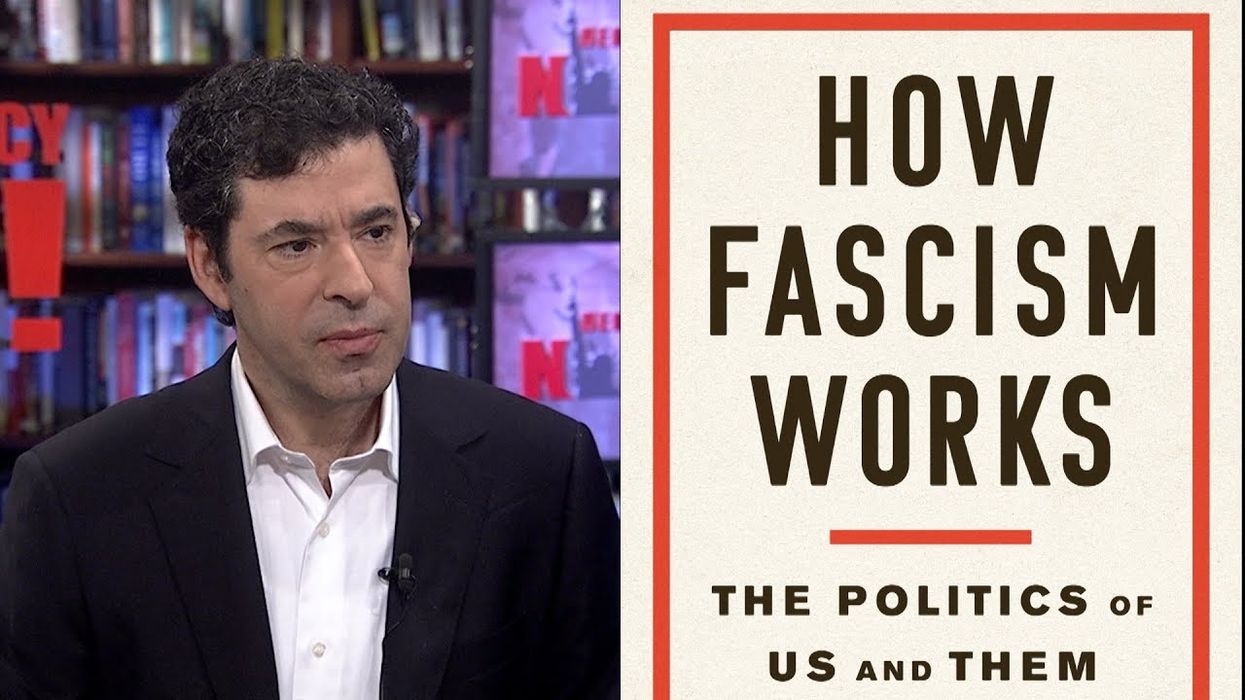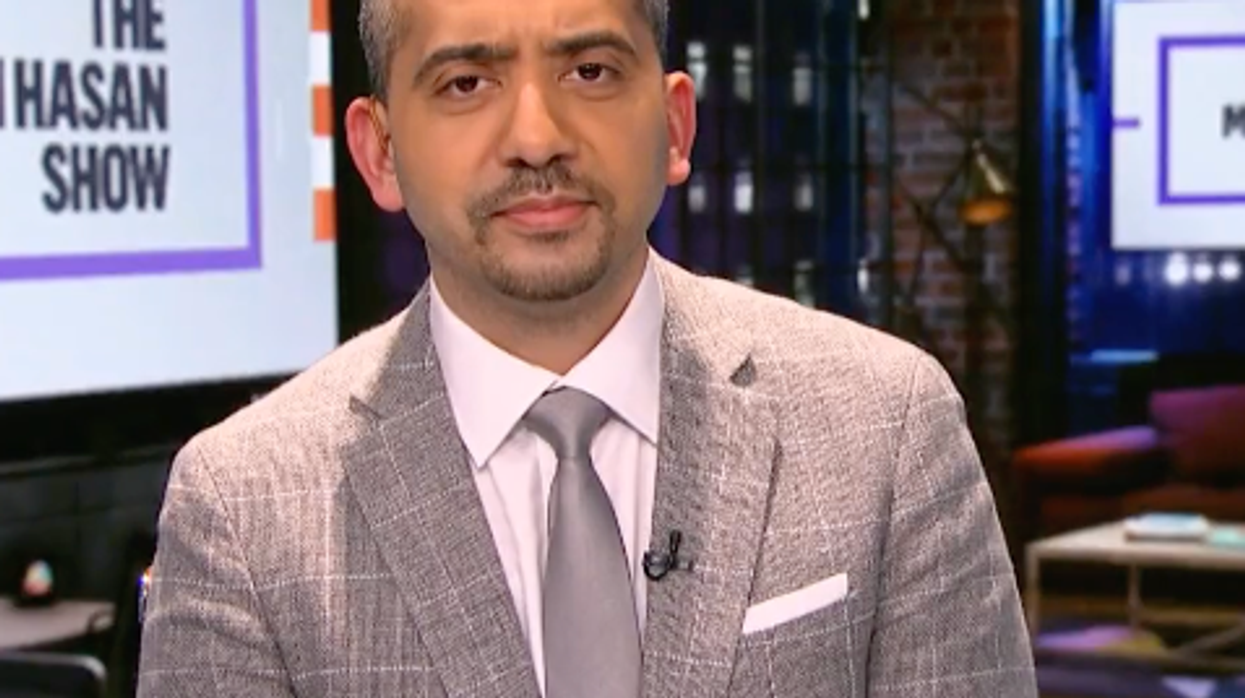
Christian fundamentalists in 2008 (Creative Commons)
John StoehrNovember 21, 2023
There exists in this country a small community of people who grew up with religious authoritarians, but no longer lives among them. As a consequence of having grown up with them, this small community knows something that the rest of the country doesn’t know – that religious authoritarians may sound like kooks, but they’re extremely dangerous.
This small community knows the kookiness is the point. If religious authoritarians can make people, especially young people, believe anything, they can control them, not just their choices, but the way they think. If they think the choice is between individual identity and group identity, they will gladly surrender their individualidentity.
This is why the small community I’m talking about no longer lives among religious authoritarians. They can’t, not without experiencing psychic death. They understand the subtle dangers of living among people who believe that everyone in the group must think and act and speak the same way, and that a difference of opinion is betrayal.
This small community I’m talking about, because they have such intimate knowledge of religious authoritarians, knows something else that the rest of the country does not know. They know the unique horror of witnessing “normal people,” which is to say, people who did not grow up among religious authoritarians, laughing at the religious authoritarians and all the unbelievably kooky things that they say.
This unique horror is not a consequence of religious insult. The small community I’m talking about started doubting everything they were taught as children a long time ago. This unique horror is a consequence of knowing what the rest of the country doesn’t know – that the kookiness is the tool by which religious authoritarians exert control. That’s not something to laugh at, then dismiss as inconsequential.
And yet that’s what the rest of the country seems to be doing when religious authoritarians, such as Speaker of the House Mike Johnson, say things that are stupendously kooky. “Normal people,” which is to say, people who did not grow up among religious authoritarians, seem to think that Johnson and his comrades can’t possibly believe what they say, so what they say can be dismissed as partisan politics.
The question, for those of us who are part of the small community I’m talking about, isn’t about the dangers posed by religious
authoritarians. We already understand them. Rather, the question is about getting “normal people,” who can’t possibly understand the trauma of trying and failing to live among people who demand psychic death as the price of membership into the group, to understand the danger.
I posed that question to Matthew Sheffield. He seems to be a fellow member of the small community I’m talking about. He’s also an outcast of the rightwing media apparatus that labors to hide the dangers of religious authoritarianism. He’s now committed to pluralistic democracy, he said, as the founder of the Flux Media Network.
“The beliefs of Mike Johnson and his fellow extremist Christians are so idiotic that the natural reaction for many non-religious people is to point and laugh – not realizing that evil is usually also ridiculous.”
JS: You said: "Many people who are secular or non-fundamentalist theists don't pay attention to the disturbing worldview of people like new Speaker of the House Mike Johnson." Can you explain please?
MS: Christian fundamentalism has been a minority opinion in the United States since Biblical literalism became a movement in the early 20th century, inspired by the work of people like John Nelson Darby.
In the south, this theology was explicitly intertwined with the "Lost Cause" myth about the Confederacy's defeat in the Civil War into a regional form of Christian nationalism that began spreading into other regions at the expense of mainline and progressive Protestantism.
The eventual religious identity politics that emerged, Confederate Christianity, is not popular. Its doctrines are obscure and often devolve into picayune debates about Bible verses that most people don’t know.
The southern flavor of its sermonizing and its explicit anti-intellectualism make Confederate Christianity distasteful. A vast majority would rather have their teeth pulled than listen to obvious scammers like evangelical preacher Kenneth Copeland.
Despite its comparative obscurity, only 10 percent of Americans are committed Christian nationalists, because it is a political identity more than a religious one. Confederate Christianity punches far above its weight thanks to hundreds of national and regional groups who motivate fundamentalist citizens to vote.
Most journalists have only been trained to be interested in the activities of prominent elected officials, so more obscure figures like Mike Johnson have long managed to evade their scrutiny.
At the local level, far-right Christians often mask their rhetoric in secular language, so they are often able to pull off things like
taking over school boards without others noticing.
JS: It seems to me that the problem of explaining the dangers is sheer disbelief. How do communicators like you address that problem?
MS: The beliefs of Mike Johnson and his fellow extremist Christians are so idiotic that the natural reaction for many non-religious people is to point and laugh – not realizing that evil is usually also ridiculous.
For those who are Christian but not fundamentalist, a common reaction is to simply roll their eyes.
I get where they're coming from.
Johnson believes that Noah's ark was real and that humans lived with dinosaurs. These are asinine superstitions. But he also believes homosexuality is a Satan-inspired choice that should be illegal and that birth control should be criminalized. Voltaire's aphorism that believing in absurdities leads one to justify atrocities is absolutely true.
The vicious ignorance of Johnson and his fellow Confederate Christians presents a real conundrum for those of us who are committed to pluralistic democracy. People seem to have an easier time recognizing screaming dictator-wannabes like Donald Trump for what they are than they do with folksy authoritarians.
That realization is why I decided to launch a comedy news discussion podcast called "Doomscroll" with my friend Lisa Curry.
Ridiculing the stupid beliefs of the Christian right is an important thing to do because there are a lot of smart people who were born and raised as fundamentalists who innately know that the beliefs are false and contradictory. But the humorous jabs must always carry the larger truth that these ideas are not only foolish, they are dangerous.
JS: On the funding of truly liberal media, you said there's no shortage of money. It's just spent in ways different from rightwing
media.
MS: As my friend Anne Nelson has documented in her book, Shadow Network: Media, Money, and the Secret Hub of the Radical Right, there is a lot of money out there for center-to-left activists and causes. Unfortunately, much of this money is not spent with an eye toward public advocacy. From the very beginning of their movement, reactionary elites realized that they were a small minority but that it didn't matter because they could use voter suppression and advocacy media to suppress their opponents' voters and whip up their own.
The other crucial advantage of funding advocacy media is that these investments are more durable and can eventually become
self-sustaining, as Fox, talk radio, and far-right podcasts have become.
There are tens of millions of people who want to hear a progressive message in the media, but Democratic donors seem to prefer wasting their money on advertising that's ineffective and short-lived.
This needs to change, especially since rightwing propaganda is beginning to fill in the gaps in local media left by the decay of
traditional media outlets. Those who control the information will control the age. People who believe in liberal values need to fund
them.
JS: You have explored "how American evangelicalism is collapsing on itself." That's a bold statement that I have to hear more about.
MS: People often perceive religion and science to be in conflict, but up until the last 100 years or so, they were the same thing. The
Bible, Quran, Vedas and other ancient scriptures were not just theological sources. They were also scientific explanations for how
things came to be and how they work. But once the disciplines of science, history and linguistics emerged, it soon became evident to educated people that these books were about as accurate as Homer's Iliad.
Unfortunately, while the academic world came to accept evolution, the pagan origins of Judaism, and a host of other discoveries, this knowledge did not filter down to religious fundamentalists. The central problem of our age is that religious fundamentalism has been utterly humiliated in the intellectual realm and that its adherents (of any faith) are only now realizing it – to their great
consternation.
JS: You said: "Hope is the belief that we're capable of something better and the determined desire to make it so." Can you go into that more?
MS: The continuously successful efforts of pro-choice advocates to protect abortion rights through ballot initiatives demonstrates that people like us are the majority, but we must use this power to usher Confederate Christianity into the dust-bin of history.
Public opinion surveys show that people born after around 1975 are dramatically less likely to believe in scriptural literalism, and that each successive generation of Americans is more supportive of racial justice, bodily autonomy and sound reasoning.
The reactionaries who took over the GOP have been aware of this. The minoritarian strategy that they were able to effect for several decades was predicated on manipulating people through religion, sexism or racism into supporting their corrupt and authoritarian candidates.
As I discussed recently on my other podcast, "So This Just Happened," the Christian right knows that its time is coming to an end.
Far-right former Senator Rick Santorum spoke for many of his compatriots this past Election Day when he lamented that it was a
"secret sauce for disaster" that young Americans are interested in supporting abortion access and decriminalization of marijuana.
It's important to celebrate victories like we experienced in 2023, but the arc of history will only bend if we make it. Demographics are not destiny. The future belongs to those who can achieve it.

















